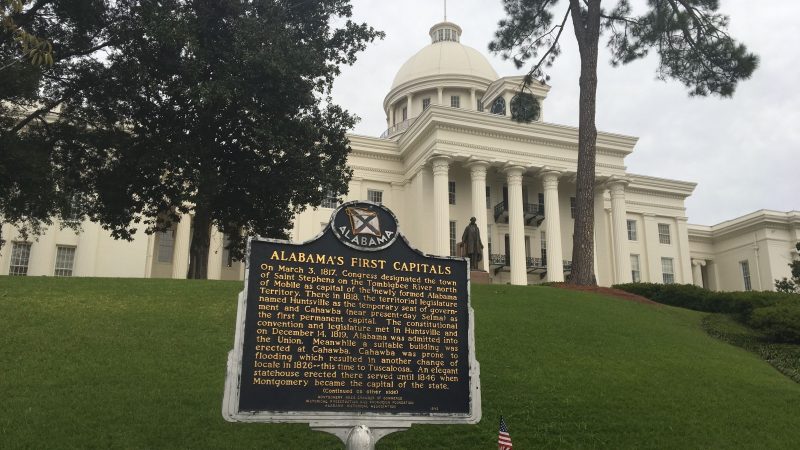Sentencing Reform, COVID Business Relief Take Priority As Lawmakers Return
State lawmakers were a bit more prepared to deal with COVID-19 protocols as they kicked off the legislative session this week. But things looked different at the State House. There’s limited access for lobbyists and the public, so the hallways weren’t nearly as crowded. There were a few hiccups with virtual streaming the debates in Montgomery, but lawmakers managed to get to work. Here are the week’s highlights with Don Dailey, host of Alabama Public Television’s “Capitol Journal.”
Overhauling Sentencing Reform
Eight bills made their way through the Legislature this week as the state faces a potential federal takeover of its violent and overcrowded prison system. One bill would add a temporary additional parole board. The current board faces a backlog of cases. Republican state Rep. Jim Hill of Moody, a former circuit judge, proposed the bill, arguing more people are needed to work through parole hearings held up by the pandemic and more longstanding problems involving the Bureau of Pardons and Paroles. Former state Sen. Cam Ward became head of that agency in December.
Moody argued creating a second parole board would allow the bureau to double up and clear much of the logjam. Moody’s argument, Dailey said, is that granting more paroles could ultimately help ease the severe overcrowding in state prisons.
The state has been under close watch by the U.S. Department of Justice, which sued the state again late last year.
COVID Tax Relief
One priority bill carried over when the session ended abruptly last year due to the pandemic exempts businesses from having to pay state income taxes on federal CARES Act money.
“A lot of individuals, a lot of businesses in the state were able to benefit from money they received from the CARES Act to prop up their businesses during the challenge of the pandemic,” Dailey said, “and there was a lot of question over whether that money might be subject to the state income tax.“
Under this proposed measure, it would not.
“And the lawmakers who supported it, by and large, said that that’s as it should be and they want to get that out very early on in the session.”
The bill passed the House Thursday and moves to a Senate committee next week.
Medical Marijuana Bill Returns
This is another carryover bill from the last session. It would allow regulated cannabis use for 15 approved medical conditions. A state commission would oversee its use. Republican Sen. Tim Melson, a physician, proposed the bill last session. It passed the Senate but never made it to the House before the Legislature adjourned due to the pandemic.
House Dem. Leader Jeffries responds to air strikes on Iran by U.S. and Israel
NPR's Emily Kwong speaks to House Minority Leader Hakeem Jeffries (D-NY), who is still calling for a vote on a war powers resolution following a wave of U.S.- and Israel-led airstrikes on Iran.
Iran’s Ayatollah Ali Khamenei is killed in Israeli strike, ending 36-year iron rule
Khamenei, the Islamic Republic's second supreme leader, has been killed. He had held power since 1989, guiding Iran through difficult times — and overseeing the violent suppression of dissent.
Found: The 19th century silent film that first captured a robot attack
A newly rediscovered 1897 short by famed French filmmaker Georges Méliès is being hailed as the first-ever depiction of a robot in cinema.
‘One year of failure.’ The Lancet slams RFK Jr.’s first year as health chief
In a scathing review, the top US medical journal's editorial board warned that the "destruction that Kennedy has wrought in 1 in office might take generations to repair."
Here’s how world leaders are reacting to the US-Israel strikes on Iran
Several leaders voiced support for the operation – but most, including those who stopped short of condemning it, called for restraint moving forward.
How could the U.S. strikes in Iran affect the world’s oil supply?
Despite sanctions, Iran is one of the world's major oil producers, with much of its crude exported to China.




